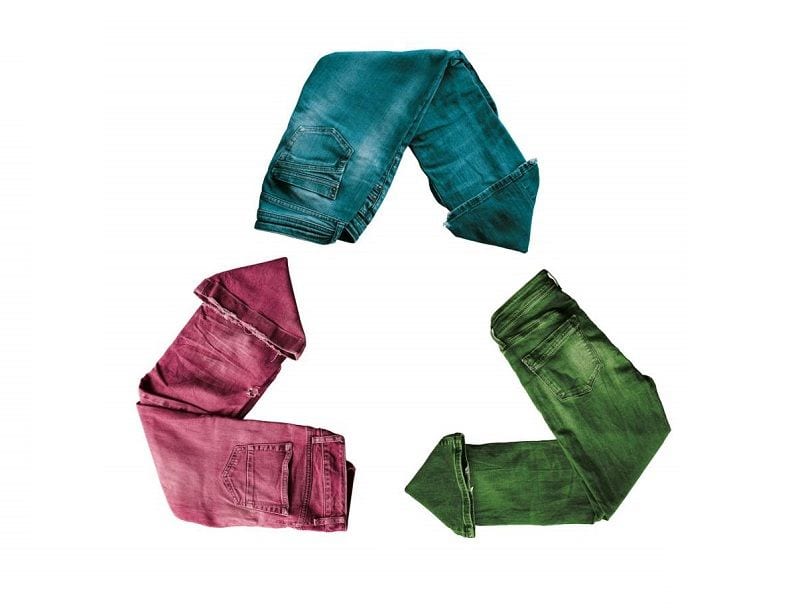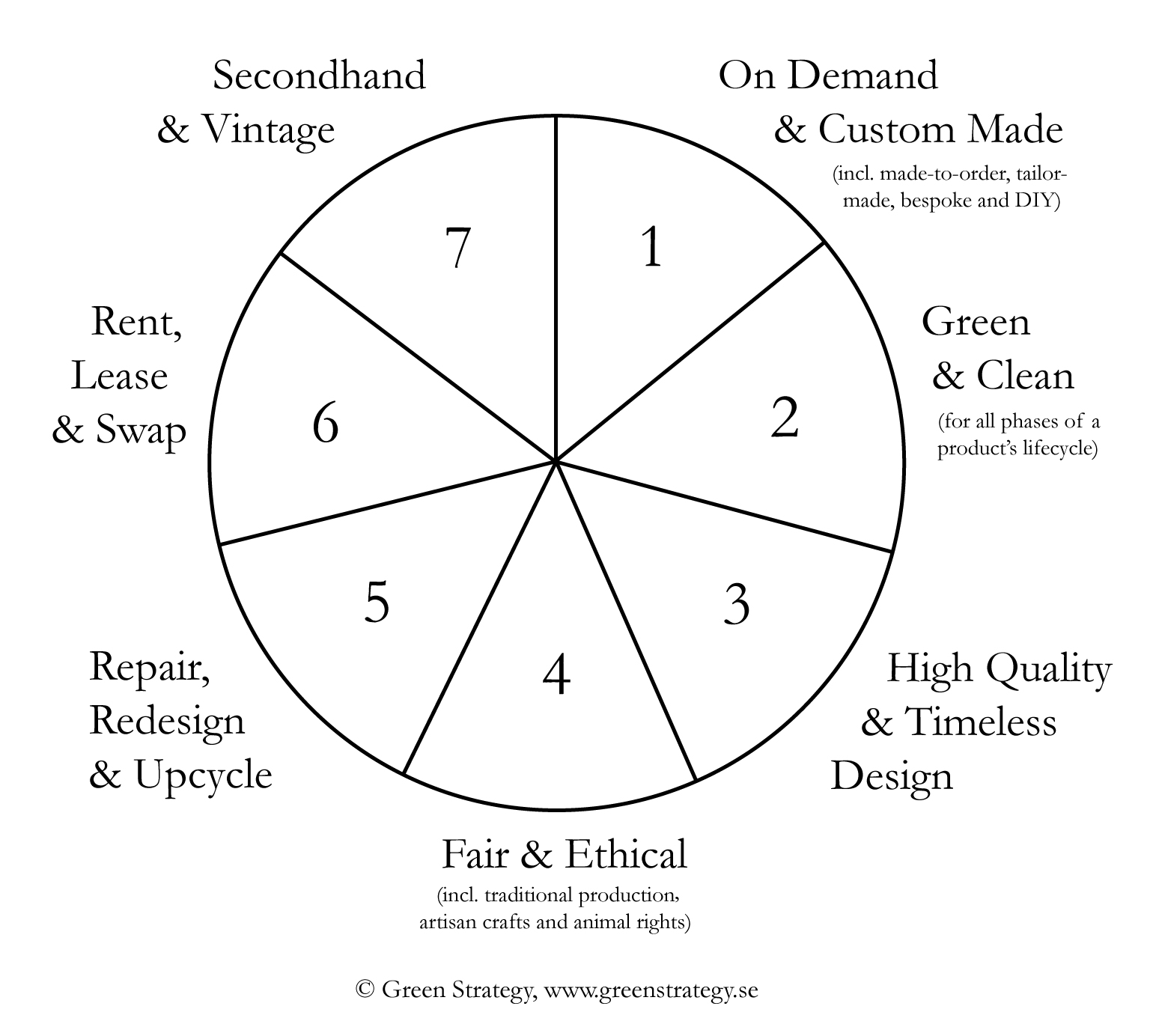Cape Town Sustainable Fashion Week: Highlighting Environment-friendly Innovations
Cape Town Sustainable Fashion Week: Highlighting Environment-friendly Innovations
Blog Article
Keep Ahead of the Contour by Checking Out Cutting-edge Style Patterns
In a market as dynamic as fashion, staying in advance involves greater than simply adhering to current fads-- it demands an exploration of development. Smart fabrics, as an example, are transforming garments into practical masterpieces, while 3D printing is changing design procedures with its adjustable, waste-reducing abilities. As sustainability becomes a foundation, innovations like eco-friendly products and circular fashion practices are reshaping environmental responsibility - Cape Town Sustainable Fashion. In addition, the merging of innovation and style advertises a brand-new age of customer involvement. Just how, after that, can these emerging fads redefine the future of fashion, and what ramifications do they hold for brand names seeking to thrive in this progressing landscape?

Accepting Smart Textiles
In recent years, the fashion business has actually seen a transformative shift with the combination of smart fabrics, an innovative technology that blends modern technology with material. This advancement represents not only a combination of appearances and capability but additionally a substantial leap towards sustainability and customization in style. Smart textiles, additionally recognized as e-textiles, embed advanced electronic devices such as sensors and conductive strings within the fabric, enabling garments to engage with the wearer or the atmosphere.
These fabrics are created to keep track of physical parameters, such as heart rate or body temperature, providing real-time health and wellness analytics. Past health applications, wise textiles are likewise being used for adaptive clothes, which can change color or pattern in action to environmental stimuli, thus using a vibrant fashion experience.
Additionally, the growth of energy-harvesting textiles that create power from movement or sunshine is leading the way for self-dependent wearable technology. This advancement is attracting environmentally mindful customers and developers intending to decrease the eco-friendly impact of style. As r & d in this field development, smart textiles are expected to come to be increasingly prevalent, reshaping the landscape of modern fashion with their multifunctional capabilities.
The Increase of 3D Printing
Changing the production landscape, 3D printing has become a game-changer in the apparel industry. This cutting-edge innovation has actually enabled developers to push the limits of imagination, producing complex and personalized garments that were previously unthinkable. By leveraging electronic layout and additive production, 3D printing promotes the production of intricate geometries and patterns, permitting developers to try out new appearances and frameworks.
A notable advantage of 3D printing in vogue is its capability to generate on-demand, reducing waste and lowering stock requirements. This efficiency not just optimizes production procedures yet also permits for quick prototyping, allowing designers to bring their visions to life in a much shorter duration. Furthermore, 3D printing sustains modification to a level unrivaled by conventional methods, supplying one-of-a-kind styles and personalized fits customized to private customer preferences.
The rise of 3D printing has actually also equalized fashion, making it easily accessible to arising designers that can currently fabricate top notch pieces without significant economic investment in standard manufacturing facilities. As technology continues to breakthrough, the style industry is positioned to harness the full capacity of 3D printing, checking out new materials and strategies that will undoubtedly redefine how fashion is conceived and generated.
Lasting Fashion Technologies
As the fashion industry faces journalism requirement for ecological obligation, sustainable style technologies have actually emerged at the forefront of transformative change. The expanding recognition of environmental influence has actually fueled a shift in the direction of even more eco-conscious techniques and materials. Brand names and designers are currently focusing on sustainability, integrating techniques that lessen waste and reduce carbon impacts.
One considerable advancement is the surge of circular fashion, which highlights recycling and upcycling to prolong the lifecycle of garments. This approach not just minimizes waste yet likewise urges consumers to adopt a more conscious approach to apparel usage. Additionally, the usage of sustainable materials, such as natural cotton, hemp, and recycled polyester, has actually gained grip. These products call for less water and power during manufacturing, significantly minimizing environmental effect.
One more breakthrough hinges on the adoption of ingenious dyeing techniques that use waterless processes or all-natural dyes, thus reducing the huge amounts of water and chemicals commonly used in textile dyeing. Additionally, Our site innovations in biotechnology have brought about view publisher site the production of lab-grown leather and textiles, offering cruelty-free and eco friendly choices to standard products. Through these introducing initiatives, the garment industry is making meaningful strides in the direction of a more sustainable future.

Tech-Integrated Garments
Tech-integrated apparel represents a revolutionary blend of fashion and innovation, reshaping just how people engage with their apparel. This cutting-edge domain is noted by the incorporation of smart textiles and ingrained digital elements, enhancing both functionality and aesthetic allure. From physical fitness trackers installed in sports apparel to warmed coats regulated via smart device applications, tech-integrated garments offers consumers extraordinary convenience and adaptability.
Pioneering brands are driving this pattern, concentrating on producing garments that react to ecological stimulations or user commands. For example, some garments can change color or pattern in feedback to temperature level shifts, while others integrate biometric sensors to keep an eye on health and wellness metrics like heart price or anxiety levels. The seamless integration of innovation into fabrics additionally extends to environmental sustainability, with initiatives to create self-cleaning textiles or garments that get used to climate condition, thus reducing the requirement for numerous layers.
Moreover, the arrival of wearable technology is not just restricted to clothes yet includes accessories like watches and eyewear, more expanding the scope of tech-integrated style. As the market remains to introduce, the potential for personalization and personalization why not check here in apparel grows, using customers special, tech-enhanced style experiences that deal with their private needs and preferences.
Future of Virtual Style
In the last few years, the future of online style has actually emerged as a transformative force within the industry, leveraging improvements in electronic technology to redefine how style is developed, experienced, and eaten. By incorporating augmented truth (AR), digital truth (VR), and 3D layout devices, designers can currently craft immersive and interactive experiences that transcend traditional fashion borders. Virtual fashion enables for the creation of garments that exist exclusively in digital atmospheres, supplying limitless possibilities for advancement without the constraints of physical production.
This digital shift not just presents opportunities for creative expression however additionally addresses sustainability problems intrinsic in conventional style methods. Cape Town Sustainable Fashion. By removing the requirement for physical resources, digital style reduces waste and minimizes carbon impacts. In addition, the rise of digital fashion straightens with the enhancing consumer demand for individualized and special experiences, as digital garments can be personalized and customized to specific preferences with convenience

Final Thought
The fashion sector's future lies in the combination of ingenious innovations and lasting practices - Cape Town Sustainable Fashion. Smart textiles and tech-integrated garments are enhancing performance, while 3D printing uses opportunities for customization and waste reduction. Sustainable fashion, with circular techniques and environment-friendly materials, demonstrates a commitment to environmental stewardship. Moreover, virtual fashion is positioned to redefine customer interactions. Adjusting to these trends is essential for brands looking for to remain relevant and competitive in this quickly developing landscape.
In recent years, the style industry has experienced a transformative change with the assimilation of wise textiles, a cutting-edge development that blends innovation with material.As the fashion sector grapples with the pushing demand for environmental obligation, sustainable fashion advancements have arised at the forefront of transformative modification.In recent years, the future of digital style has emerged as a transformative force within the industry, leveraging improvements in digital innovation to redefine how style is created, experienced, and consumed. The surge of online style lines up with the raising consumer need for unique and tailored experiences, as virtual garments can be customized and customized to private preferences with ease.
The fashion industry's future lies in the assimilation of sustainable techniques and ingenious technologies.
Report this page